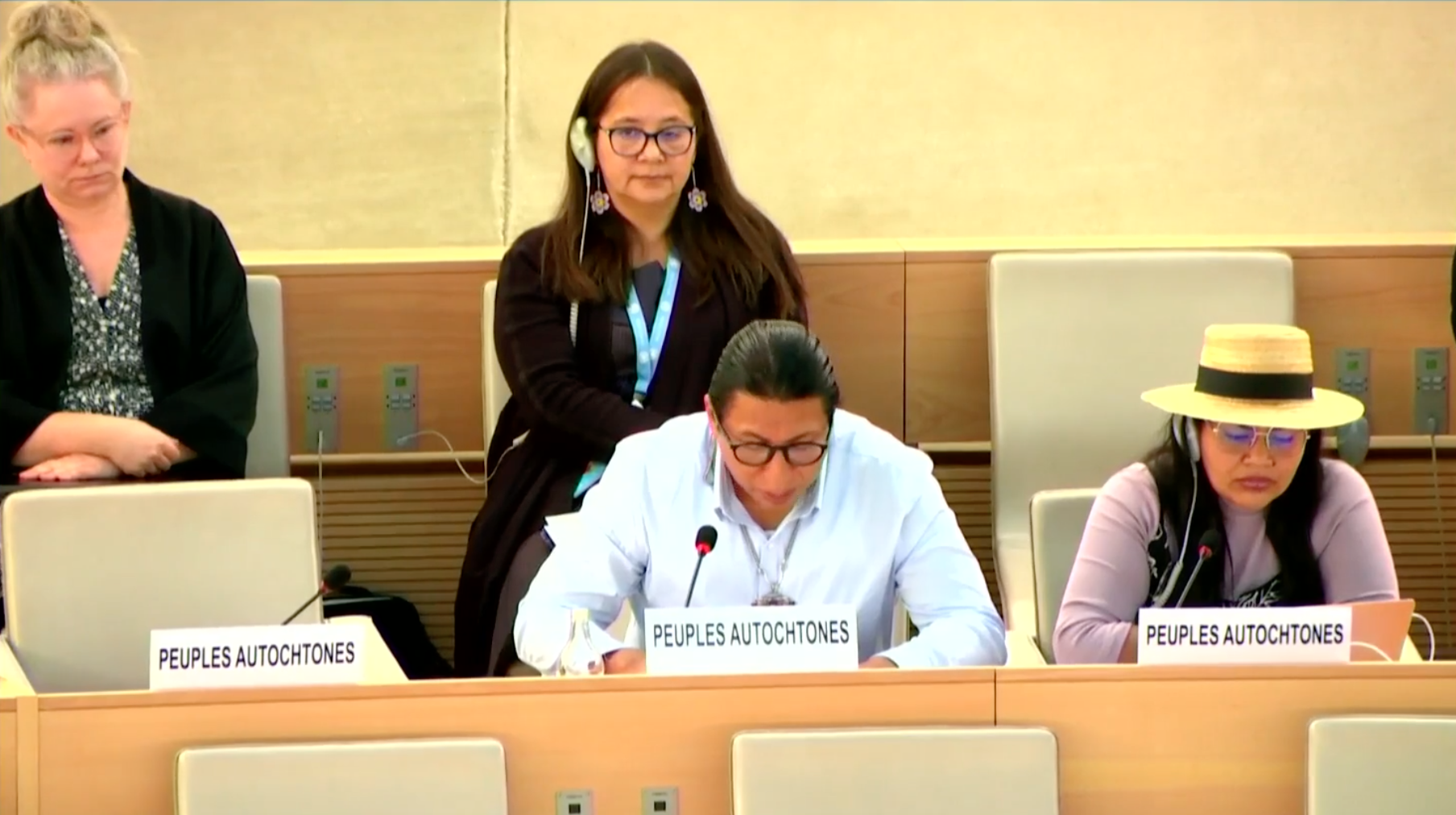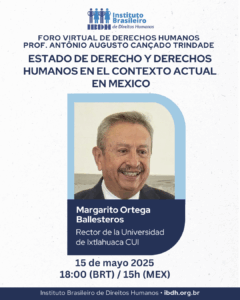The Instituto Brasileiro de Direitos Humanos (IBDH) supports the ongoing process at the Human Rights Council to identify concrete ways for indigenous peoples’ direct participation in the Council’s works, especially on those matters concerning them.
Last week, the Human Rights Council held the Second intersessional Meeting to discuss direct participation of indigenous peoples at its works, following two days of preparations. HRC Resolution 54/12, para. 16, gave the green light for indigenous peoples, States, UN agencies, funds and programs to continue the dialogue to identity concrete ways to enhance their voice and views, by themselves, at the Council.
It is time for the Human Rights Council, two decades after adoption of the UN Declaration on the Rights of Indigenous Peoples to transform the effective participation of indigenous peoples into reality. The principle nothing about us without us should, in practice, allow indigenous peoples to share their voice at the Council, according to their own political and cultural specificities, by themselves.
The Council was established in 2006 by the General Assembly to address the human rights situations on the ground and to give timely response to violations, according to present-time conditions. The set of procedures already established by the Council on indigenous rights, such as the Expert Mechanism on the Rights of Indigenous Peoples that provides specialized advice to the Council, is a positive step. However, there are both formal and factual factors that hinder indigenous peoples’ ability to represent themselves in the HRC.
For non-indigenous NGOs, participation in the Council relies on the complex ECOSOC accreditation, requiring resources beyond the means of many organizations worldwide. For indigenous peoples, these obstacles represent a disproportionate burden. Furthermore, Indigenous peoples’ organizations are inherently different from NGOs. Their collective decision-making processes, and their cultural and political specificities, require another arrangement of non-governmental participation at the Council.
The acceptance by the HRC and other UN organs of direct and independent participation of indigenous peoples in its activities is a corollary of the right to self-determination, as per Articles 1 of both Covenants. It also consists of a pillar of the UNDRIP itself and a principle of jus cogens in international law.
In this context, there are positive steps in this direction. During the Council’s 57th session, indigenous organizations took the lead during the negotiations of the yearly resolution on the relevant thematic resolution, which included a paragraph on their autonomous participation. The UN Permanent Forum on Indigenous Issues and the UN Expert Mechanism on the Rights of Indigenous Peoples are key mechanisms led by indigenous peoples, for indigenous peoples, providing specialized expertise to the UN system.
During the debates of the Second Intersessional Meeting, the indigenous peoples present at the dialogue chose the approach of collective rights, instead of individual rights. Although some State delegations have manifested resistance to the former type, there is a wealth of legal arguments providing authority to the fact that human rights can be exercized both individually and collectively. This issue was extensively debated during the negotiation and drafting of the UNDRIP itself. During the process of the adoption of UN Declaration on the Rights of Peasants, this argument was posed to the HRC again, without success.
Another correct legal characterization chosen by the panel was the concept of peoples, instead of merely groups. This concept is grounded on scholarly writings, treaties’ texts, extensive practice by the UN treaty-bodies and special procedures. These sources combined manifest enough legal authority under Article 31 of the Vienna Convention on the Law of Treaties to validate indigenous peoples as a legal concept and to be securely adopted by the HRC.
The concept of indigenous people in international law transcends the simple idea of minority, as coined by Capotorti, in his study of 1979. His study touches upon indigenous peoples in an illustrative fashion, though supporting the principle of self-identification. Moreover, the integrationist mindset embedded in the study, is obsolete and inappropriate for the current understanding of peoples. For instance, the CERD Committee, in General Recommendation No. 23, two decades later, recognized that the ICERD’s definition of racial discrimination in itself may be interpreted as a right to be treated differently (diversity), breaking decades of legal colonialism. The Human Rights Committee, for its part, has evolved in the interpretation of the ICCPR to cover peoples as rights holders, instead of a mere group of individuals, as it approached the issue in its early case-law. Undeniably, ILO Convention 169 and the UNDRIP, adopted thereafter, form a specific body of international law that must guide these current debates.
Indigenous peoples are not only victims of massive violations of human rights. They are agents of change, particularly in the combat of climate change, preserving biodiversity and keeping the entirety of humankind alive. They are needed at the UN.








